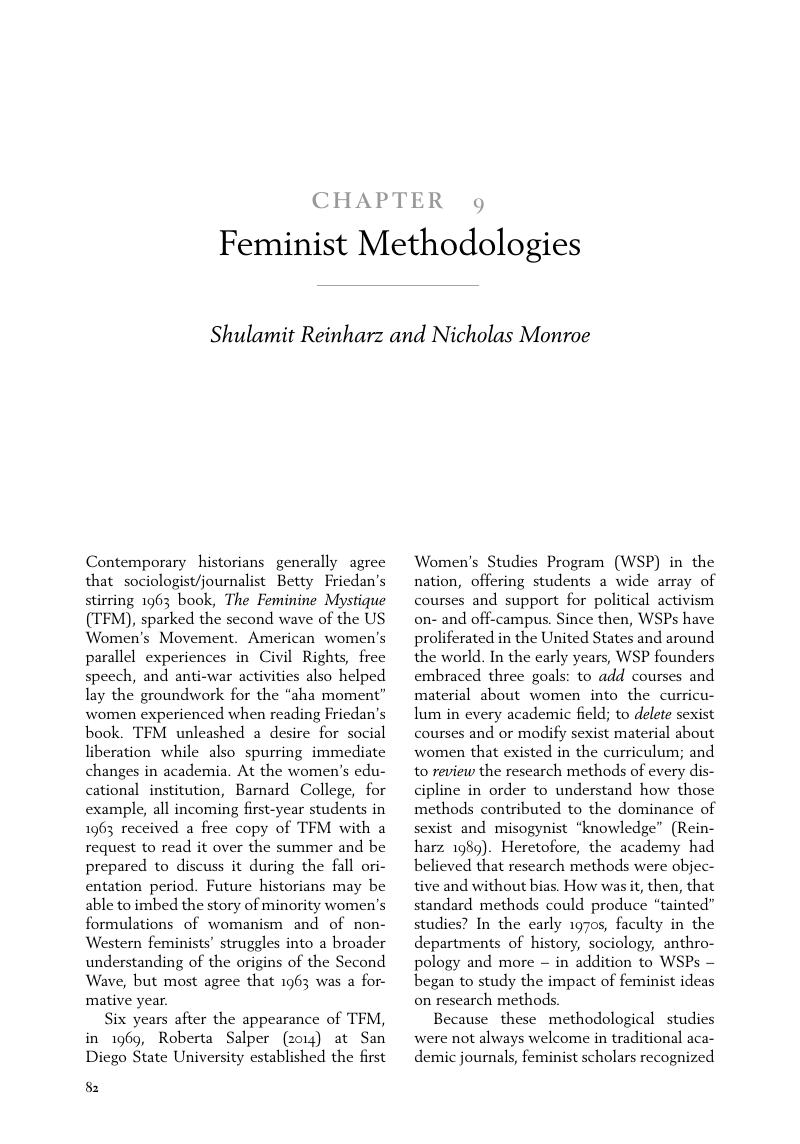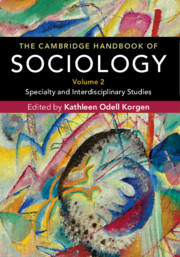Book contents
- The Cambridge Handbook of Sociology
- The Cambridge Handbook of Sociology
- Copyright page
- Contents
- Figures
- Tables
- Contributors
- Introduction
- Part I Perspectives on Race
- Part II Perspectives on Social Class
- Part III Feminist Perspectives
- Chapter 8 Feminist Theories
- Chapter 9 Feminist Methodologies
- Part IV Specialty Areas
- Part V The Sociology of the Self
- Part VI The Sociology of the Life Course
- Part VII Culture and Behavior
- Part VIII Sociology's Impact on Society
- Part IX Related Fields
- Index
- References
Chapter 9 - Feminist Methodologies
from Part III - Feminist Perspectives
Published online by Cambridge University Press: 07 September 2017
- The Cambridge Handbook of Sociology
- The Cambridge Handbook of Sociology
- Copyright page
- Contents
- Figures
- Tables
- Contributors
- Introduction
- Part I Perspectives on Race
- Part II Perspectives on Social Class
- Part III Feminist Perspectives
- Chapter 8 Feminist Theories
- Chapter 9 Feminist Methodologies
- Part IV Specialty Areas
- Part V The Sociology of the Self
- Part VI The Sociology of the Life Course
- Part VII Culture and Behavior
- Part VIII Sociology's Impact on Society
- Part IX Related Fields
- Index
- References
Summary

- Type
- Chapter
- Information
- The Cambridge Handbook of SociologySpecialty and Interdisciplinary Studies, pp. 82 - 92Publisher: Cambridge University PressPrint publication year: 2017



